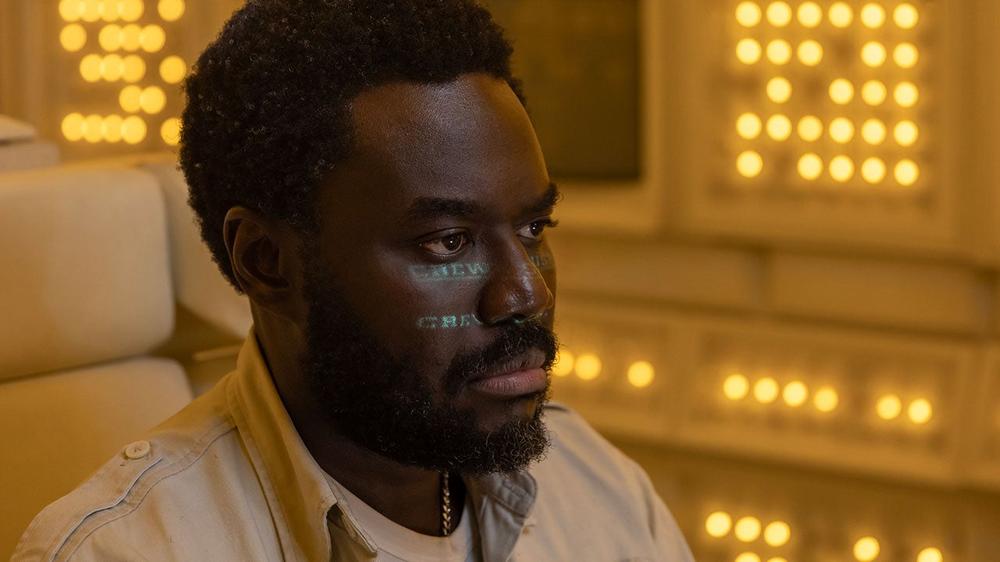Warning: this article contains spoilers for Alien: Earth through Episode 3, “Metamorphosis.”
With any fandom, there are always specific ideas about how and why things can and should work. That can be true on an individual basis, or a global basis as the fanbase argues about “canon” – what is, and what isn’t. And nowhere is that more prevalent than with fans of the Alien franchise, which has had to deal with expansive mythology and lore over the decades since the original Ridley Scott movie debuted in 1979, then has doubled back to reinvent its own mythology again and again. So with that in mind, if you’re upset about the FX and Hulu series also reinventing the Xenomorph mythology? Get over it.
The Alien Franchise's Confusing Timeline
To take a step back (and not immediately antagonize the potential fanbase for this article), part of the issue likely started with some confusion over the timeline of the series. In the original 1979 movie, the Nostromo encounters the Xenomorph in 2122, and the implication is that Weyland-Yutani – the company that is funding the expedition – has never encountered the alien lifeform before. That’s not exactly true, though, as we discovered in Prometheus (which is set in 2093) and Alien: Covenant (which is set in 2104). And frankly, there’s nothing in Alien that explicitly says the overarching evil corporation does or does not know about the Xenomorph, or sent previous expeditions to bring it back. We know that the crew of the Nostromo has never encountered anything like it before, but that’s all we’ve got.
Further confusing things, a Deadline article from 2024 incorrectly stated that Alien: Earth would take place at the turn of this century, before the events of Prometheus. But wait, there’s more: during a set visit, showrunner Noah Hawley told press that the show takes place during James Cameron’s 1986 movie Aliens, which is set in 2179.
It does not. The eight-episode premiere season of the series does take place in 2120, two years before Alien, so whatever was going on there… who knows? But this general confusion about what happened before or after Alien: Earth has definitely amped up tension for fans eager to know how it all makes sense.
The main issue? It does not make sense if you try to line it all up in a row. Specifically, the Maginot, the central ship in Alien: Earth, has been on a 65-year mission to bring back, among other things, Xenomorph eggs to Weyland-Yutani. If you do the math there, they picked them up sometime between 2055 and 2120, while David (Michael Fassbender) creates the Xenomorphs in 2104 in Covenant. Is it possible they picked up alien eggs right after that? Sure, why not, and in fact, no information in the show contradicts this theory. But it’s a bit of a brain-wrinkler to think about David inventing the Xenomorphs, the Maginot picking up a bunch of eggs, and then the Nostromo finding a bunch more eggs, all in the span of 16 years. Add in whatever is going on with the continuity of Weyland-Yutani, a corporation that spans the series and itself seems to eat its own timeline whenever possible, and you’ll find your brains melting out of your ears quicker than if you were hit with a dose of xenomorph blood.
Further compounding things is Hawley’s view on the enterprise. “There’s surprisingly little mythology across seven movies,” Hawley said in an interview with Variety. “It was great to not have to jerry-rig a mythology into what’s existing, but to just start again.”
That sound you just heard was dozens of fan wikis angrily getting flipped over by Alien fans, by the way.
Why Continuity Doesn't Really Matter
But here’s the main point of this, now that we’ve been in the weeds for several paragraphs: does it matter at all if Hawley sticks with existing continuity… If it’s good? Why worry about having a piece of art be a series of checkboxes, or breadcrumbs leading between events, instead of a soup of interesting ideas that may or may not be made to work by some other filmmaker later on? And furthermore, isn’t that what the Alien series has always been about: evolution, both in terms of the Xenomorph itself, as well as artistically through the lens of different directors and creators?
While the first four films in the franchise ostensibly followed the story of Ripley (Sigourney Weaver), believe it or not, each entry has been less about her ongoing story than the specific visual and story quirks of the filmmakers behind the camera. Some have worked, like when Cameron upped Scott’s haunted house parable into an action/war movie. Others, less so, like the troubled, dark prison planet film made by David Fincher in Alien 3, or the big time jump swing of Alien: Resurrection. But even those latter two entries were trying something different than the first two movies, even if that experiment didn’t work. To Hawley’s point, they were less concerned about fleshing out the mythology or extending the franchise than saying something pointed using the Xenomorph as a metaphor and external stressor on our main characters.
Alien: Earth has also been taking those swings, not focused on existing lore but on what looks good, weird, or is interesting to follow, story-wise. Take the Xenomorph running on all fours, something that – per pre-existing lore – shouldn’t happen, as the Xenomorphs take on the characteristics of their hosts. Except the thing is, a Xenomorph scurrying around like a feral animal is much scarier than it stalking the halls like a slasher. Is it accurate with what has been set down before? Not necessarily. Does it allow for a more visually exciting show? Yes.
Episode 3 amps things up considerably by showing us one thing that we’ve absolutely never seen before: a Xenomorph tadpole. We’ve known for decades that the Xenomorph life-cycle is egg to face-hugger to chest-burster to full-grown Xenomorph. Thanks to a dissection of a face-hugger by synth Kirsh (Timothy Olyphant), we discover that they’re holding a xenomorph embryo that essentially functions like a tadpole. And furthermore, we get to see it slither inside the removed lung of Joe (Alex Lawther). This is the sort of thing that Alien: Earth thrives on, as it doesn’t directly contradict anything we’ve seen previously. But the assumption has been that the xenomorph gestates in a digestive tract. Can it do so in a lung? Can the tadpole really swim? Why can it swim?
Again: who cares? It looks cool, it’s interesting, and more importantly, the entire show – heck, the whole franchise – is about growth. It’s often come from the direction of motherhood, and there are shades of that from Essie Davis’s Dame Silvia. But the thrust of Alien: Earth is about children, and growing into adulthood, which is what we get to see here, from the beginning stages of the Xenomorph to, presumably, it’s final form.
But perhaps the biggest, most curious addition is Wendy (Sydney Chandler) a hybrid synth with the brain patterns of a child seemingly being able to hear the Xenomorph. We’ve seen this in previous episodes when Wendy got close to the creature, with a strange buzzing/clicking sound in her ear. Episode 3 drives it home as she hears the Xenomorph screaming in its “birth” as Kirsh removes it from the face-hugger, eventually collapsing on the floor. We’ve never seen synths react this way before… But even here, it’s a natural extension from the strange fascination they’ve shown with the creatures in previous entries, from David to Ash (Ian Holm) in the original movie.
Should synths be able to hear Xenomorphs? Should these hybrid synths exist at all, alongside cyborgs, if we’ve never seen them before in the series? How is some technology more advanced than it appeared later in the franchise? And what about the fact that humanity doesn’t just know about the Xenomorph, there are also multiple other alien species on earth in the new TV series?
The fact is it doesn’t matter as long as Hawley and company are continuing to follow the core ethos of the Alien series, which is to follow one's artistic muse. That’s been true when Scott created something fresh and new in 1979, and even when he attempted to reinvent it with Prometheus in 2012. And isn’t letting something make a statement so much stronger than merely filling in the dots like other prequels? This show isn’t about leading up to the reveal of the Nostromo, or introducing Carter Burke’s (Paul Reiser) dad. It’s telling it’s own story in it’s own way, and if not everything makes exact sense with what has happened before, as long as internally it tells its own story, it works. It’s up to the fan wikis to figure out the rest, as soon as they pick them up from getting flipped over.

 One of the Best Nintendo Switch 2 Cases Drops to the Lowest Price Ever on Amazon
One of the Best Nintendo Switch 2 Cases Drops to the Lowest Price Ever on Amazon